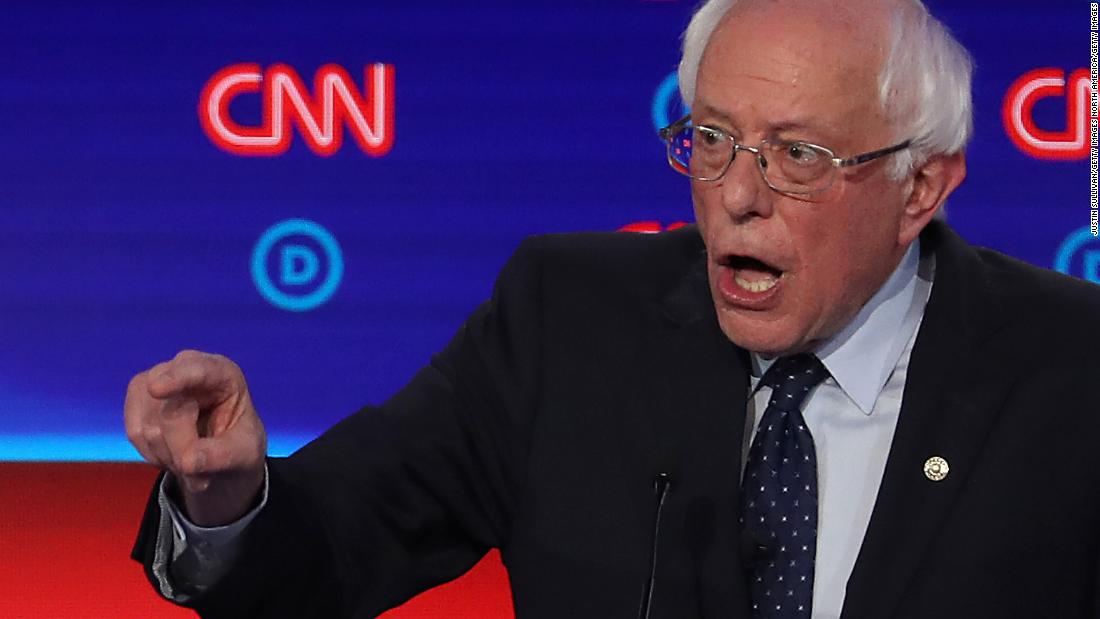[ad_1]
I watched — from the debate site in Detroit — and jotted down some of the best and worst performances from the 10 candidates on stage. My picks of the winners and losers from Tuesday night’s debate (in no particular order) are below.
*Steve Bullock: The Montana governor, to his immense credit, understood that this debate was his one big chance to make an impression with voters — and move from the third tier upward. I’m not sure if his numbers will move in a major way, but Bullock went for it — from his opening statement on. He made clear, time and time again, that he did not believe that the liberal views of Warren and Sanders were grounded in reality and did believe that those views would cost Democrats the election. He blasted “wish-list economics” and talked about the need to solve the “here and now” problems rather than offering what he views as unworkable pie-in-the-sky policies. If moderates were looking for someone other than former Vice President Joe Biden to support in this primary, Bullock offered himself as a viable alternative.
* Pete Buttigieg: As in the first debate, the South Bend, Indiana mayor played it (relatively) safe. But unlike the first debate, there was a clear message: I am young, yes, but the older people on stage with me haven’t fixed any of these problems, so it’s time for something different. I think it’s smart for Buttigieg to a) own his age (he’s 37) and b) try to turn it from a perceived weakness into a strength. The idea that politics (and politicians in both parties) have failed and it’s time to give a whole new generation of politicians a chance has always been a powerful one — especially in a time where people on all sides of the political spectrum hate politics. That said, there were moments in this debate where Buttigieg leaned too far into his own mystique; “The racial divide lives within me,” he said at one point. Dude, what?
*John Delaney: Before this debate, no one knew who Delaney was or what he believed. If you watched this debate, both of those questions were answered. That doesn’t mean you necessarily loved Delaney, as he quite clearly embraced a moderate view on almost everything. But Delaney’s repeated clashes with Sanders and Warren were a win for the former Maryland congressman in the very fact that they existed. Yes, Warren dunked on Delaney over what she insisted was his emphasis on what Democrats can’t or shouldn’t do, but all in all, this was a very good debate for him.
*Donald Trump: An extended conversation about eliminating all private insurance. A top-tier candidate — Warren — fully embracing decriminalizing illegal immigration. All of that is music to the President’s ears. Remember that his poll numbers — job approval that has never broken 50%, etc. — suggest that there is no positive message that wins Trump a second term. Which means he needs as much fodder as possible to cast Democrats as deeply out of touch and representative of a creeping socialism. He got plenty on Tuesday night.
*Opening statements: I really liked the fact that each of the candidate got a chance, right at the top of the debate, to lay out who they are and what they believe. It felt like a policy-centric and abundantly fair way of starting off a debate for president, and each candidate used the time well to make their case.
LOSERS
*Elizabeth Warren: Yes, she made both lists. She had moments, without question (See: Winners). But Sanders seemed to better and more strongly articulate the liberal positions that define both of their campaigns, repeatedly. And Warren’s high-profile embrace of decriminalizing illegal immigration will add fuel to the fire for the already existing concerns among some Democrats that she is taking positions that could make her unelectable in a general election.
*Anecdotes: Some consultant somewhere some time ago told a candidate that the best way to “connect with voters” is to tell a story about “Bill from Buffalo,” who has had some sort of terrible misfortune and was done wrong by the government. Can we all agree that this anecdote-driven empathy needs to end? It’s not effective. It feels totally pre-planned and scripted. It tells us zero about what a candidate would do for the country as a whole. Enough!
CORRECTION: This story has been updated to correctly state that John Delaney is a former Maryland congressman.
[ad_2]
Source link



